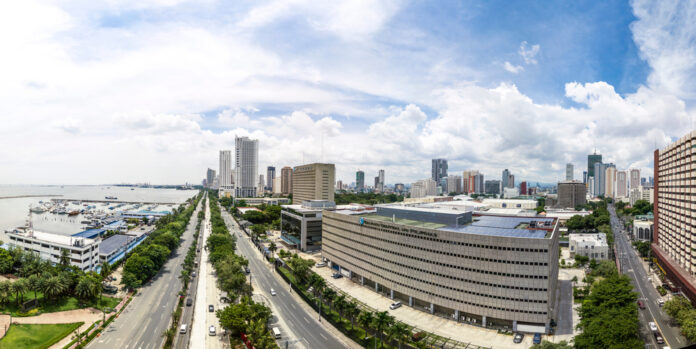The regular meeting of the monetary board (MB) of the Bangko Sentral ng Pilipinas (BSP) on Thursday turned into a rate-setting meeting instead as the six-man MB raised the rate at which it lends to banks by 25 basis points to 6.5 percent, effective tomorrow, Friday, 27 October.
The off-cycle adjustment was in recognition of elevated inflation the BSP now forecasts in 2024 sharply higher to 4.7 percent from only 4.3 percent and likely remain above target beyond even the first six months next year. Headline inflation steadily declined from 8.7 percent in January this year to only 4.7 percent by July but has since climbed back up to 6.1 percent in September, basically on food price inflation.
BSP governor Eli Remolona said the policy rate could stand another adjustment at the upcoming MB meeting on 16 November “if things are worse than we thought. We are hoping the data are nicer to us but if not, then we will have to consider a further rate hike.”
He ruled out inflation moving down in the final three months as originally seen: “That is no longer the case. We don’t think that will happen. In fact, I think from March to July next year headline inflation will be above 4 percent. That is what our model says.”
With prices as elevated as the monetary authorities now project, local output expansion measured as the gross domestic product (GDP) is likely at peril as well although Remolona said 3Q GDP should show “some recovery” from 2Q growth of only 4.3 percent to 4.5 percent.
“Our growth targets are lower than before but that seems partly because of the slowdown in global demand and also the disappearance of pent up demand. But we are watching that very closely. We don’t want a tight monetary policy to affect our growth prospects,” Remolona said.
This has reference to high inflation, and the blunt instrument of its control in the form of interest rate adjustments, as a tax on the propensity of both businesses and households to consume. As that propensity declines, so does growth.
When asked on whether the MB should have acted sooner and made the adjustment in September, Remolona responded in the affirmative.
“In my view, yes. I think we fell a little bit behind. That’s the reason for this effort to catch up,” he said.
“We didn’t look closely enough at expectations,” he quickly and candidly acknowledged.
This has reference to the BSP’s Household Expectations Survey where 92 percent of consumers think that in the next 12 months inflation would be around 4 percent.
“That is very worrisome to us. As you know, monetary policy cannot control supply-side price shocks but it can serve to break the link between those shocks and expectations. And also the link between those supply-side shocks and second-round effects, including, for example transport fare hikes and minimum wage increases. That is what we worry about, what we focus on,” Remolona explained.
Wages have been raised in areas outside Metro Manila and transport fare hikes have been provisionally approved. So do toll rates whose phased adjustments proceed as scheduled.
These events contribute to the broadening of so-called second-round effects on prices where the adjustment in one impacts and amplifies on others: “Inflation expectations have risen sharply, highlighting the risk of further second-round effects. The balance of risks to the inflation outlook still leans significantly toward the upside, due mainly to the potential impact of higher transport charges, electricity rates, international oil prices, and minimum wage adjustments in areas outside the National Capital Region.”
The policy rate adjustment means higher interest charges for both households and businesses for using borrowed funds from banks, financial institutions and even non-bank financial entities like financing companies.
Car and housing loans, even credit card charges should prove more expensive down the line as the policy rate adjustment bites.
Hopefully, the macroeconomic data prove benign when Remolona and five other members of the monetary board meets again on 16 November this year.







